Are bachelor flocks right for you? In this article, we’ll break things down for you to help you make the decision.
Roosters are a staple in many cultures around the world. They represent daybreak and victory, liveliness and courage, fertility and virility. But some roosters have gone one step further to show their vitality: they’ve chosen bachelorhood over marriage.
That’s a joke, of course – you probably already know that chickens don’t get married! However, you might not know that many people choose to raise roosters alone, keeping them in “bachelor flocks” rather than intermingling them with their hens.
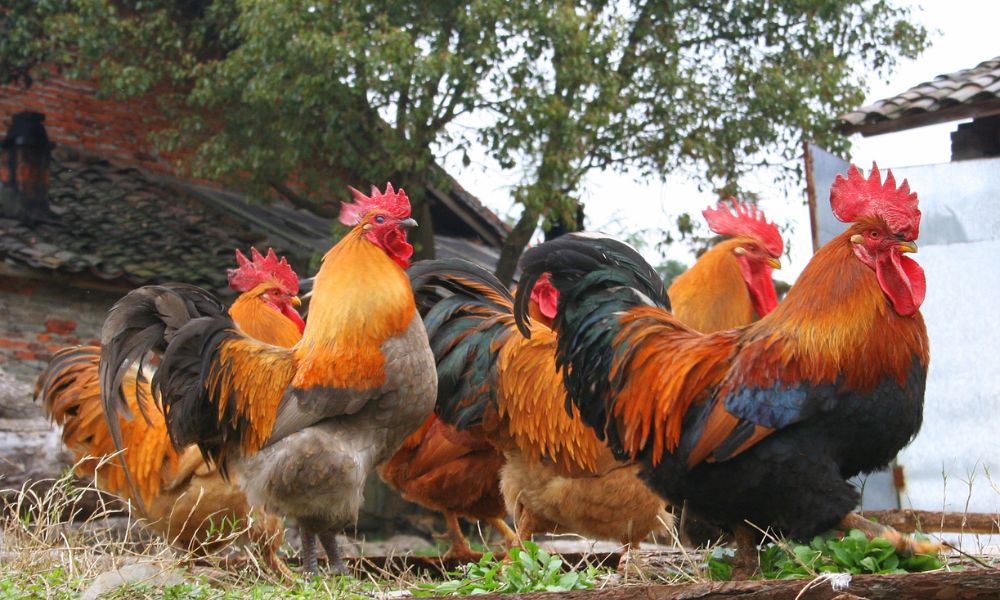
It’s hard to imagine a world without roosters. We’ve all grown up hearing or learning about, the sound of their crow in the morning, and they’re often depicted as symbols of masculinity or virility. But there’s so much more to these birds than what we see on TV!
Roosters are very intelligent animals, and can even be trained for various tasks such as herding sheep. They also have a natural instinct to protect chickens from predators, which is why they live with them in farm settings.
There are many benefits to keeping flocks of roosters – and only roosters – but there are also several considerations you will need to make in order to do so successfully.
Here’s what you need to know.
Table of Contents (Quickly Jump To Information)
What Are Bachelor Flocks?
A bachelor flock is a term that is affectionately used to describe a flock of multiple male chickens, or roosters. These kinds of flocks are growing incredibly popular since there are so many roosters that are unwanted and homeless.
This kind of flock dynamic can be maintained with a group of roosters of any size. The best size for your bachelor flock will depend largely on how much space you plan on providing your birds.
Typically, every rooster should have at least 24 square feet of outside space regardless of its breed or size. This will prevent overcrowding, something that increases the likelihood of fighting, aggression, and injuries.
Will the Roosters Fight?
To keep a bachelor flock, it’s important to note that the roosters don’t have to be the same age, size, or breed – nor do they have to have grown up together. In any flock, a pecking order or hierarchy will be formed that will guide the dynamics of the flock.
There is almost always a rooster who will serve as the alpha in charge of the other members of the flock. His job, as it would be in a flock composed entirely of hens, will be to resolve conflicts and protect the rest of the flock.
While this is a natural part of keeping more than one rooster, even in a flock that also contains hens, it does mean that there’s an increased risk of fighting any time the alpha rooster’s position is threatened.
This can happen when a new rooster is introduced to the flock, a flock member is injured or sick and temporarily removed, then reintroduced to the flock, or when the flock is temporarily split up.
It can cause multiple roosters to gang up on one bird and make it more difficult for conflicts to resolve naturally. So while keeping a bachelor flock does mean that you have to be on the lookout for fighting, there are plenty of steps you can take to reduce the likelihood that there will be any long-term implications of this.
How Do I Keep Roosters Separate from the Hens?
Some people choose to keep bachelor flocks only at certain times of the year or in certain situations. For example, if you don’t want your roosters to breed the hens, you may need to temporarily separate the roosters to create bachelor flocks.
For this temporary application, you can keep your rooster in a makeshift cage of chicken wire. The rooster can come out of the cage whenever he’d like, under your supervision, to stretch his legs.
Of course, you can always keep the roosters and hens in a separate coop and run areas. The benefit of this is that you won’t have to intervene quite as often. Just make sure the two groups can’t fly over or crawl under the fence to get to each other.
You will want to make sure there are visual barriers between rooster flocks and nearby hens. Without any hens to impress, your roosters will be able to live in a more peaceful environment.
What are Alternatives to Keeping Them Cooped Up All Day?
Don’t keep your roosters cooped up all day! This will encourage aggression and can lead to many unwanted behaviors.
Instead, allow them access to as much free-range area as possible. If free-ranging isn’t possible where you live, consider using a mobile chicken tractor system so that they always have fresh grass and bugs to entertain them. This will also provide protection from predators.
Another way to give your roosters the activity they need to stay healthy is to put them in a covered run. That way, they can free range to their hearts’ content without having to worry about predators – or about them chasing away your mailman!
How Do I Feed a Bunch of Roosters?
Provide multiple waterers and feed areas, each of which should be positioned at various spots within the enclosure. This will reduce the likelihood of one or two roosters exhibiting guarding behavior and make sure that all roosters can eat and drink. Use a feed designed for roosters rather than one meant for laying hens – they don’t need the extra calcium. Treats like chicken scratch are always encouraged as well!
Plus, if you have any roosters that start to show aggression toward you, having multiple feeding and watering stations will allow you to fill the ones that are furthest away from the most aggressive bird at any given time! This is a good way to keep yourself safe.
Of course, training your roosters to expect your presence – and to respect, but not fear, you – is a good way to prevent yourself from being attacked when you feed your birds, too. Offering them some treats, like black soldier fly larvae, is a great way to get them excited to see you.
Will They Start Attacking Me?
A bachelor flock of roosters is no more likely to attack you than a single rooster is.
Because of this, there are plenty of ways to keep them away.
Many experts say never to fight with ornery roosters – in a bachelor flock, it’s even more important that you don’t resort to this response in front of the other birds. Instead, wear long sleeves, boots, and gloves! Condition your roosters to respect and like you by feeding them treats out of your hand.
It can take some time to train your roosters to look forward to your arrival but this is the easiest way to prevent attacks – as is making sure your roosters are well-fed and not crowded in any way.
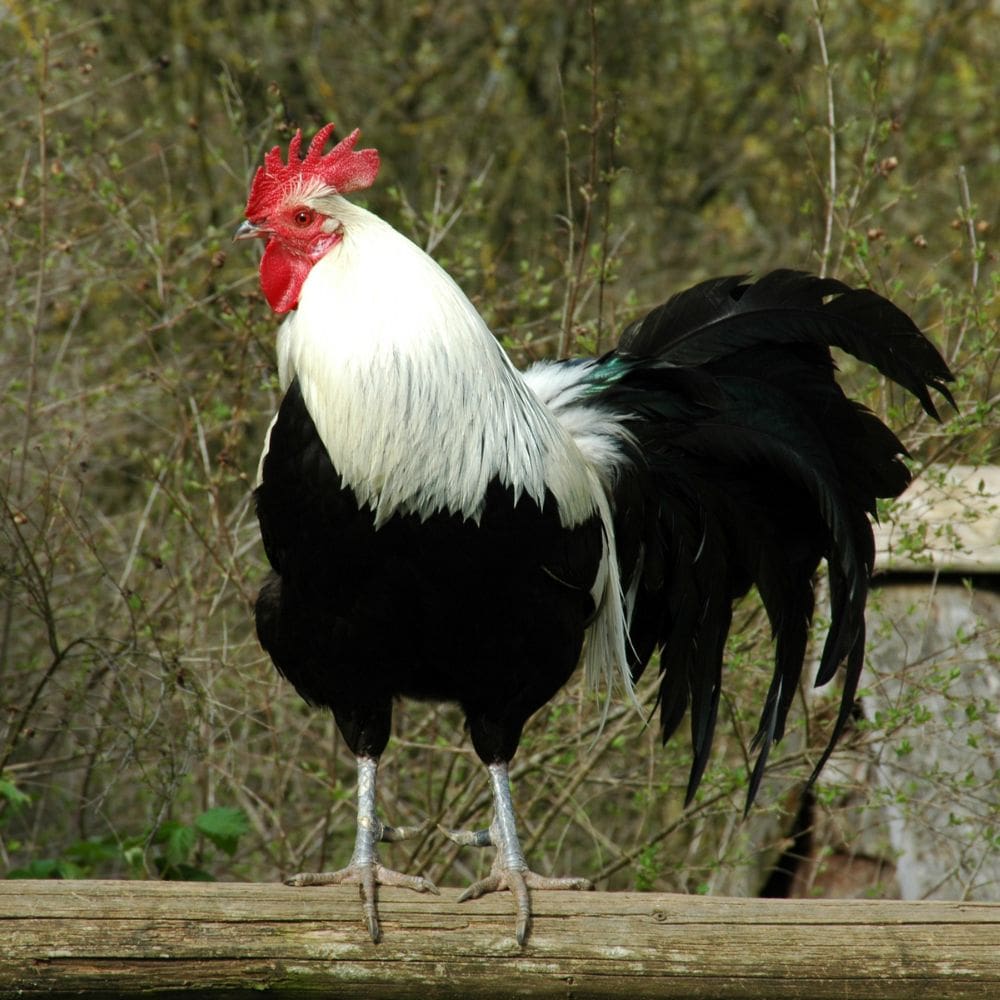
Why Bachelor Flocks Are So Great
There are plenty of reasons to keep a bachelor flock.
For one, it can help keep unwanted roosters from becoming homeless. In many parts of the country, there are cities that allow only hens, not roosters. There are even some entire counties with rooster bands! They can be noisy and a bit more aggressive, which is why they are much more likely to need to be rehomed.
Roosters, however, deserve just as much compassion and grace as their female counterparts! They can be just so inquisitive, snuggly, and entertaining. Though they might scuffle to establish their pecking order, each rooster is an individual with its own personality. This is yet another great reason to consider keeping a bachelor flock.
Did you know that, in the wild, there are many naturally existing bachelor flocks? That’s right – roosters not only can be raised in rooster-only flocks, but they very well might enjoy it.
Some people keep bachelor flocks of roosters to eat the ticks and fleas in their yards. It gives unwanted or rescue roosters a home, and they earn their keep.
And last but not least, roosters are just like other birds – they are often more stunning than the ladies. Roosters can be fun to keep just to enjoy their beautiful colors.
How Much Room Would a Bunch of Roosters Need?
In general, you should provide your roosters with significantly more room than what you might provide for a flock of hens or even a mixed-sex flock.
That’s because roosters are prone to aggression when they become stressed – and overcrowding is the most common cause of stress. Roosters tend to be more rowdy, energetic, and active than hens. Make sure you give each bird around 24 square feet of outside space.
The amount of indoor space you provide is less important, particularly if you give them free-range access outside. However, it is still crucial that you make sure your roosters have plenty of room to stretch their legs and wings!
How Do I Entertain Them?
There are several ways you can entertain your roosters, which is a great way to limit the likelihood of aggression and keep your birds healthy.
Consider adding some enrichment items like hanging cabbage balls, chicken swings, and other toys. Change these toys up frequently to keep your birds guessing.
You can even do something as simple as removing a toy for a bit and then reintroducing it later.
Of course, the importance of open access to grazing and foraging areas can’t be overlooked, either.
Will They Get Lonely Without Hens?
Roosters are very motivated by having a flock of hens to interact with, protect, and of course, mate with. After all, that’s the life purpose of a rooster!
While it is certainly ideal to keep your roosters with hens, you can encourage a social setting by keeping your rooster with other roosters. When done correctly, this is a good way to make sure everyone gets the social interaction they need.
How Do I Make Sure They Will All Get Along? Is There Still a Pecking Order?
The pecking order is a dynamic that exists in a flock of any kind of bird, regardless of sex. Even a flock that is composed solely of hens can still be prone to some pecking order-related issues.
Therefore, you will want to take certain steps to make sure your roosters get along.
Carefully monitor the behavior of your birds. The pecking order can change over time, particularly when you have a flock of mixed-age birds. Keep a close eye on the flock to make sure no single member is being isolated or bullied – or kept away from the food trough or drinking areas.
Make sure you offer your roosters plenty of escape routes. Examine the coop and run before you introduce your roosters to make sure there are no places where roosters might be trapped by the others when chased. You might also install extra ledges, curtains, perches, hiding spots, visual barriers, playground areas, and other diversions.
There are several other triggers that can make aggression more likely, too. For example, if your chickens are hungry because their feed has been limited or offered on an irregular feeding schedule or because they have been exposed to extreme temperatures, they are going to be stressed and more likely to fight.
Even the potential threat of a predator can make it more likely that your chickens will fight. Limit stressors as much as possible to keep your chickens safe and healthy.
In rare cases, you may have to remove the offending rooster. Be careful about jumping to this as the first line of defense, though, as it may cause a shuffling in the hierarchy and pecking order that will just cause another rooster to behave badly in return.
Are Bachelor Flocks Right For My Farm?
It is common knowledge that roosters are loud, obnoxious creatures. But they also have a more subtle side to them that can be quite charming. Roosters like to make friends and hang out with other roosters (hence the name). They also enjoy the company of humans who feed them treats! Believe it or not, roosters can actually make great pets.
And if you want to keep a flock of just roosters – no hens – that’s an option for you, too. Just follow the tips above and you shouldn’t have any problem doing so. Keeping bachelor flocks can be very satisfying.
Maat van Uitert is a backyard chicken and sustainable living expert. She is also the author of Chickens: Naturally Raising A Sustainable Flock, which was a best seller in it’s Amazon category. Maat has been featured on NBC, CBS, AOL Finance, Community Chickens, the Huffington Post, Chickens magazine, Backyard Poultry, and Countryside Magazine. She lives on her farm in Southeast Missouri with her husband, two children, and about a million chickens and ducks. You can follow Maat on Facebook here and Instagram here.

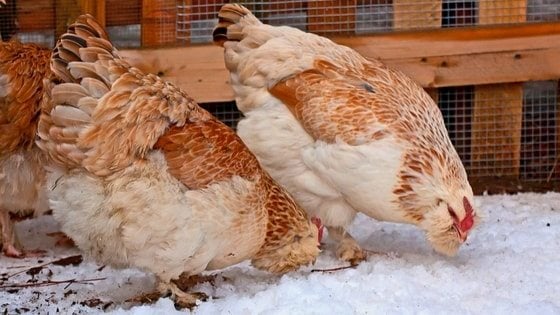
![Why Backyard Chickens Lay Weird Looking Eggs & What To Do About It [Podcast]](https://thefrugalchicken.com/wp-content/uploads/2016/12/why-chickens-lay-weird-eggs-podcast.jpg)
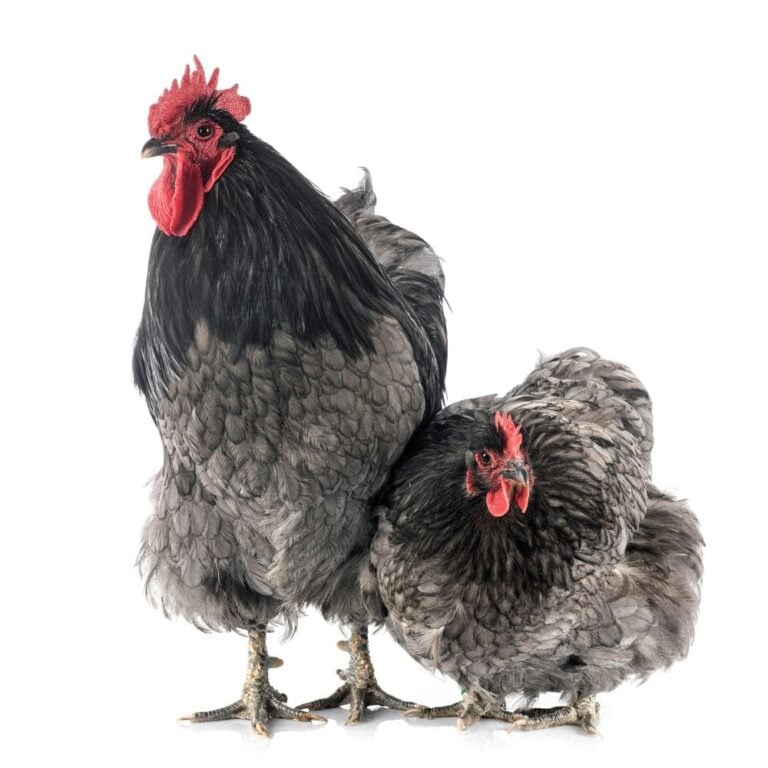
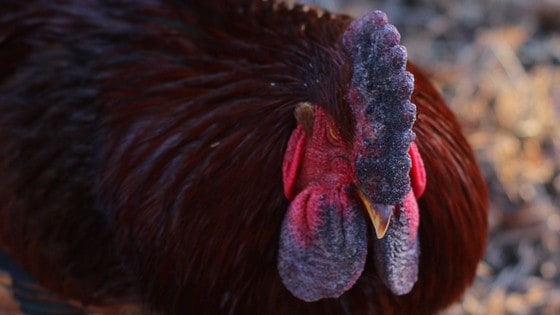

![Save Money On Chicken Feed: 8 Ways To Save Mega Bucks When Feeding Your Chickens What The Cluck?! Session 10 [Podcast]](https://thefrugalchicken.com/wp-content/uploads/2015/11/save-money-chicken-feed-feature.jpg)